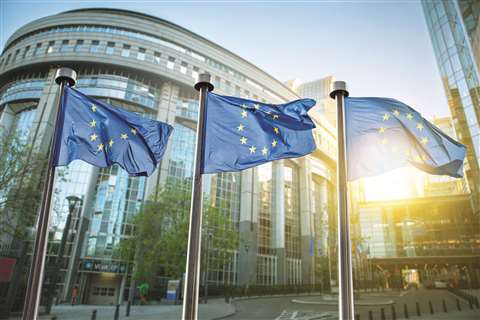What impact will EU legislative proposals have on rental companies?
23 June 2022
The EU Taxonomy is a European classification system for sustainable economic activities that aims to direct investments towards sustainable projects and activities.
 ERA is preparing a position paper to push for the broadest possible inclusion of equipment rental.
ERA is preparing a position paper to push for the broadest possible inclusion of equipment rental.
Under the Taxonomy Regulation, companies with over 500 employees have to disclose KPIs in their non-financial reporting for: ‘Taxonomy-compliant share of turnover’, ‘Capital expenditure (CapEx) aligned with the EU taxonomy’ and ‘Operating expenses (OpEx) aligned with the EU taxonomy’.
The Taxonomy Regulation tasks the European Commission with establishing a list of environmentally sustainable activities for each of the six environmental objectives through delegated acts.
The final report by the expert group advising the European Commission included the entire NACE code 77 – Rental and leasing activities as significantly contributing to the transition to a circular economy, although it is limited to the rental of certain products. Construction machinery is not included in the list.
ERA is preparing a position paper to push for the broadest possible inclusion of equipment rental in the upcoming delegated act.
Corporate Sustainability Reporting Directive (CSRD)
The European Commission’s proposal for a Corporate Sustainability Reporting Directive (CSRD) aims to revise and strengthen the existing rules introduced by the Non-Financial Reporting Directive (NFRD) and will legally oblige companies to report on compliance with new European sustainability reporting standards.
The scope includes all EU companies that meet at least 2 out of 3 criteria: more than 250 employees, a turnover that exceeds €40 million and a balance sheet that exceeds €20 million.
The reporting requirements will include generic, sectoral and company-specific KPIs. ERA will use its CSR KPI Guidance Framework to push for establishing a set of sectoral KPIs relative to the rental industry to be included in this delegated act.
Directive on Corporate Sustainability Due Diligence
The European Commission’s proposal for a Directive on Corporate Sustainability Due Diligence sets out a corporate duty for the largest companies to perform due diligence that will identify, prevent, mitigate and account for external harm resulting from adverse human rights and environmental impacts from their activities.
In practice, this proposal will require several measures from companies, such as:
- To integrate due diligence into policies
- To identify actual or potential adverse human rights and environmental impacts
- To prevent or mitigate potential impacts
- To bring to an end or minimise actual impacts
- To establish and maintain a complaints procedure
- To monitor the effectiveness of the due diligence policy and measures, and publicly communicate on due diligence
The proposal includes only EU companies with more than 500 employees and a net turnover of more than €150 million. Companies with more than 250 employees and a turnover of €40 million will only have to comply if at least half of their turnover stems from engaging in a high-risk sector (e.g. mining). The Directive might have an indirect impact on SMEs, so they should be prepared.
Machinery Regulation
The European Commission’s proposal to revise the EU Machinery Directive and replace it with a Machinery Regulation is ongoing. As it is a regulation, it will be directly applicable across the EU without being transposed into national law.
 The European Commission’s proposal to revise the EU Machinery Directive and replace it with a Machinery Regulation is ongoing. (Photo: Adobe Stock)
The European Commission’s proposal to revise the EU Machinery Directive and replace it with a Machinery Regulation is ongoing. (Photo: Adobe Stock)
The new Regulation includes:
- New technologies, such as artificial intelligence and cybersecurity, are taken into account.
- The definitions and scope are clarified and the list of high-risk machines is updated.
- It introduces the concept of “substantial modification” that defines conditions under which a renovated machine is not considered to be new or different.
- It will allow for delivering only a digital version of instructions, saving costs for equipment manufacturers and rental companies.
Sustainability requirements are not in the scope of the draft regulation.
STAY CONNECTED



Receive the information you need when you need it through our world-leading magazines, newsletters and daily briefings.
CONNECT WITH THE TEAM









